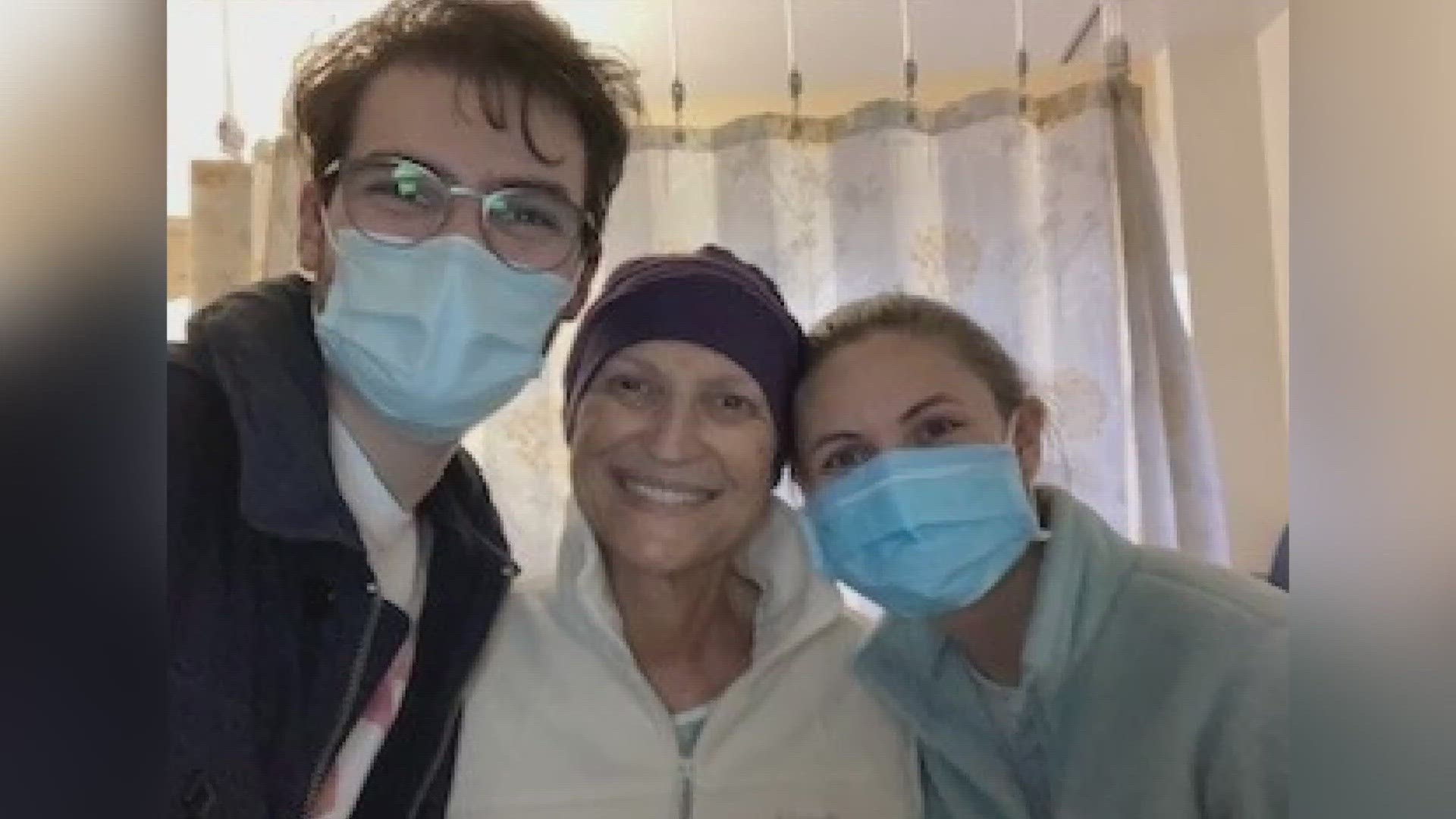SACRAMENTO, Calif. — There’s a cancer drug shortage putting lives on the line. Common prescribed medicines for cancer patients — especially for women — are in short supply, forcing doctors to reduce doses of chemotherapy or delay treatment.
Marie Kennedy, a communications specialist in Natomas, had been active her whole life until suddenly it was put on pause.
“I had just been on a nine day river rafting trip down the Colorado River,” said Kennedy. “I got home and I was feeling pretty tired but I didn't think anything about it.”
Her tiredness never went away, so she went to the doctor who ran several tests. The results were life changing.
“We discovered that not only did I have cancer, but had metastatic cancer. [It] had spread. I had it in my stomach, I had it in my lungs, I had it in my ovaries,” said Kennedy.
Her body responded well to chemotherapy, the standard of care for hundreds of thousands of cancer patients.
The treatment is threatened because of a shortage of more than a dozen common cancer medications including cisplatin and carboplatin. They are used to treat a wide range of common cancers like cervical, breast and lung cancers.
“These drugs became what we call frontline, or first line, because it gives that individual the best chance to have a positive outcome,” said Dr. Karen Knudsen.
The National Cancer Institute says cisplatin and similar drugs are prescribed in up to 20% of all cancer patients.
“The common theme is that these are the generics,” said Knudsen. “There is less of an interest in manufacturing them and… a difficulty in creating a business model that will support the cost of these low-cost generic lifesaving drugs.”
Not only is it an economic problem, it’s also a supply chain and communication problem. One challenge is that the U.S. drug market is so large. The aging population is also increasing the demand for such drugs.
India, one of the world’s largest raw materials manufacturers for the drugs, has temporarily stopped production, too.
To boost supply during the shortage, the FDA is temporarily allowing imports of cisplatin and will “very carefully assess the overseas product for quality, making sure it is safe for U.S. patients” and “is aware that orders have been placed and product should be arriving soon."
“It’s very critical to recovery,” said Kennedy. “I don’t know what would have happened to me if they weren’t, wouldn’t be able to give me that standard of care.”
Sutter Health and Kaiser told ABC10 they are working on identifying alternative treatments as necessary. Meanwhile, Pfizer says they are not experiencing a shortage of chemo medicines.
STATEMENTS
Pfizer spokesperson: “Due to supply disruptions faced by other manufacturers, there continues to be shortages of carboplatin injection. To help patients continue to have this treatment option available, Pfizer has been delivering more carboplatin than what we historically have, and we continue to explore options to release even more. We are closely monitoring the situation but cannot speculate on when these external manufacturing shortages will be resolved.”
FDA spokesperson: “The FDA added cisplatin to its Drug Shortage Website on February 10 and carboplatin on April 28, 2023. The FDA is in frequent communication with all manufacturers of cisplatin and carboplatin, and one of those companies that makes these products, Accord (for which Intas manufacturers their cisplatin and carboplatin, as indicated on the packaging), informed the FDA that they have halted distribution temporarily. Other manufacturers continue to produce cisplatin, but currently without Accord’s distribution, there is not sufficient supply to continue to meet U.S. market demand through just those companies. We understand from Accord they have begun to release inventory again and we will continue to work with Accord and the other companies to resolve these shortages. The FDA has been working closely with Accord and will update the drug shortages website with new supply information as it becomes available.
The FDA worked with Qilu Pharmaceuticals and Apotex Corp. to temporarily import cisplatin to help meet patient needs during the shortage. In this situation, we very carefully assess the overseas product for quality, making sure that it is safe for U.S. patients. Please see the entry in our drug shortages database as well as the “Dear Health Care Provider” letter regarding this action. We will continue all efforts with the approved manufacturers in addition to any potential importation actions to meet all patient needs for the oncology drugs impacted by shortages. To note, the FDA is aware that orders have been placed and product should be arriving soon. For any additional information, please contact the firm.
The FDA is continuing to explore temporary importation for both cisplatin and carboplatin, as well as methotrexate, which is also in shortage. To note, there are other oncology drugs that currently have temporary importation, such as fludarabine and streptozocin.”
Sutter spokesperson: "We are addressing this global shortage head on and working to minimize the impacts to our patients receiving these drugs as much as possible. Our oncologists and their care teams are working one-on-one with patients to make them aware of the situation and any alternative treatment options that may be needed.
Our Pharmacy, Oncology and Supply Chain teams are identifying new suppliers, coordinating existing drug supplies across our integrated system, and implementing response plans that put our patients first and align with industry best practices and recommendations.
In addition, we’re collaborating with other California and U.S. healthcare organizations to advocate for our patients with entities like the Food and Drug Administration and Congress to help urge drug manufacturers to release more supplies of cancer drugs and identify long-term solutions to supply issues."



















